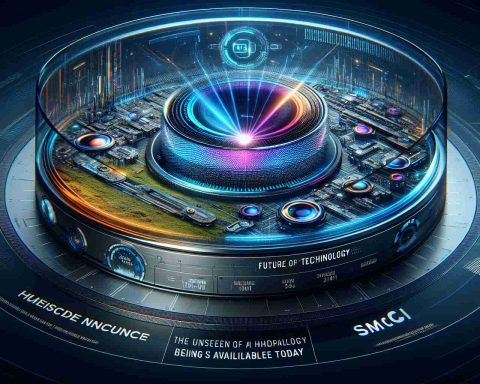Amid the rising wave of AI technology, NVIDIA Corporation (NASDAQ:NVDA) has once again outperformed expectations with its third-quarter financial results. Despite facing supply chain challenges, the company’s stellar performance across various sectors provided much-needed optimism for stakeholders.
Nvidia’s Impressive Q3 Results:
The tech giant astonished analysts with its third-quarter revenue, reporting an incredible $35.1 billion, a considerable 94% increase compared to the previous year. This figure surpassed the predicted consensus of $33.12 billion. Additionally, the reported earnings per share (EPS) stood at 81 cents, beating the anticipated 75 cents. Nvidia has consistently delivered higher-than-expected revenue for nine consecutive quarters, and for eight straight quarters in terms of EPS.
Sector Specific Achievements:
Nvidia’s data center segment was a notable highlight, boasting a record-breaking $30.8 billion in revenue, a rise of 112% from the previous year. The gaming and AI PC division showed a 15% increase, reaching $3.3 billion. The automotive sector followed with a 72% increase to $449 million.
Future Outlook:
CEO Jensen Huang noted the accelerating shift toward AI as a transformative force across industries worldwide. While supply constraints for the new Blackwell production loom, the commitment to meeting the growing demand remains unwavering. Nvidia forecasts fourth-quarter revenue around $37.5 billion, signaling ongoing growth.
Looking ahead, the commitment to AI and technological innovation is expected to fuel Nvidia’s trajectory, keeping investors and industry watchers engaged. How far will Nvidia soar as it shapes the future of AI-driven industries?
The Hidden Ripple Effects of Nvidia’s AI Dominance on Society
In recent years, the rapid advancement of AI technologies has not only disrupted industries but has also begun to significantly alter daily life, societal structures, and global economic dynamics. While Nvidia’s financial triumphs showcase its role as a leader in the AI revolution, there are several less-explored dimensions of its impact that merit attention.
AI’s Socio-Economic Impacts on Communities:
Nvidia’s soaring revenue, driven by innovations in AI, also highlights the growing dependence of communities on AI technologies. AI is increasingly becoming a key player in jobs across various sectors—from automated customer service agents to data-driven decision-making in healthcare. This shift poses both opportunities and threats.
Advantages:
AI applications promise efficiency and accuracy in various tasks, allowing humans to transition into more creative and strategic roles. For instance, AI-driven tools in healthcare can lead to early diagnosis and treatment of diseases, improving the quality of life and reducing mortality rates.
Challenges:
On the flip side, the rise of AI brings the potential for job displacement in roles that are easily automated. A critical question arises: how do we prepare the workforce for an AI-dominated future? Communities might face challenges in reskilling and upskilling programs if governments and organizations do not proactively address these needs.
The Global AI Divide:
As AI technology becomes more integral, a new form of digital divide is emerging—an “AI divide.” Countries and communities with access to AI resources and skills could see substantial economic growth, while others might lag, exacerbating existing socio-economic disparities. This divide raises ethical questions about equity and access, challenging leaders to ensure inclusive growth.
Environmental Considerations:
The demand for Nvidia’s products, especially GPUs used in AI computations, brings with it environmental considerations. The energy consumption associated with AI data centers can be significant, leading to a larger carbon footprint. While Nvidia is at the forefront of tech innovation, what steps are being taken to minimize environmental impacts? How are companies integrating sustainable practices in their AI strategies?
Controversies and Debates:
As AI technology matures, so do debates around privacy, surveillance, and ethical AI. Nvidia, being at the heart of AI advancements, faces scrutiny over how its technology could be used. A critical debate focuses on AI’s role in surveillance and the balance between security and privacy. Are we prepared for the ethical dilemmas posed by AI’s capabilities?
In summary, Nvidia’s AI advancements extend far beyond economic gains; they herald transformative changes that affect lives and societies. As we revel in the possibilities presented by AI, it is essential to engage with the accompanying challenges to ensure these advancements lead to a better, more equitable world.
For more information on Nvidia and AI developments, visit nvidia.com and explore resources at wired.com.


























